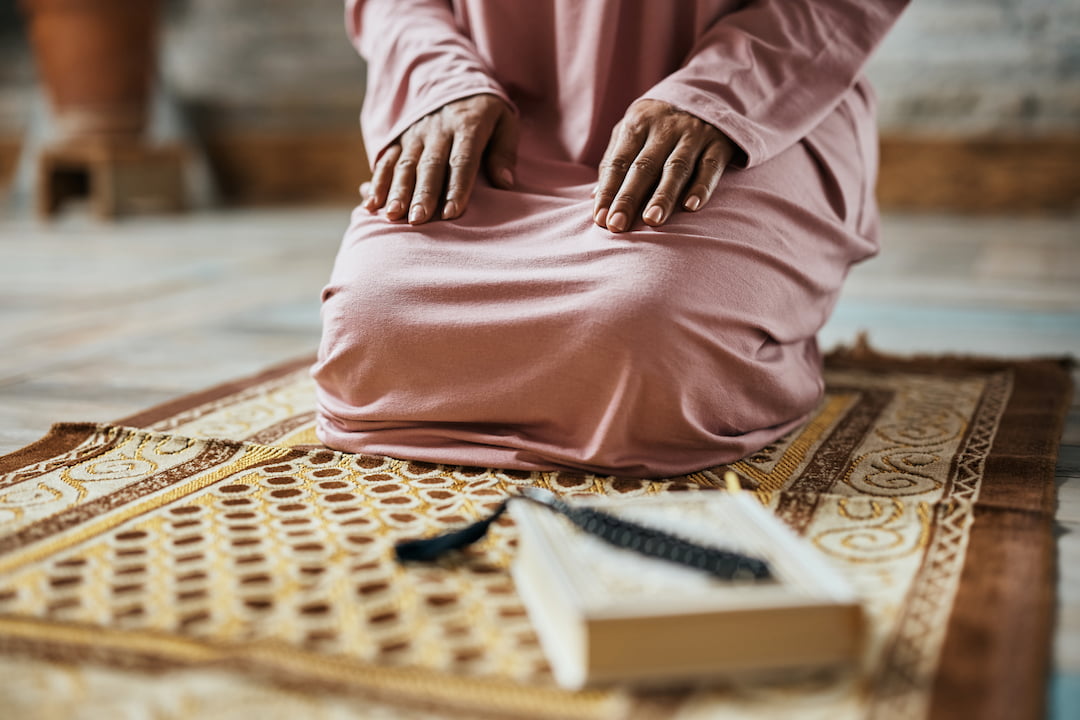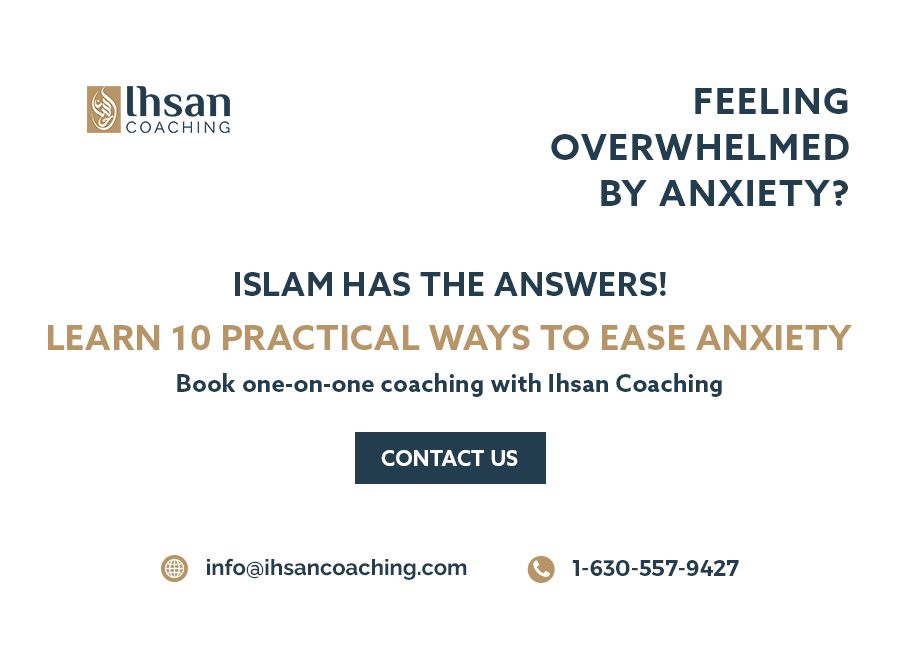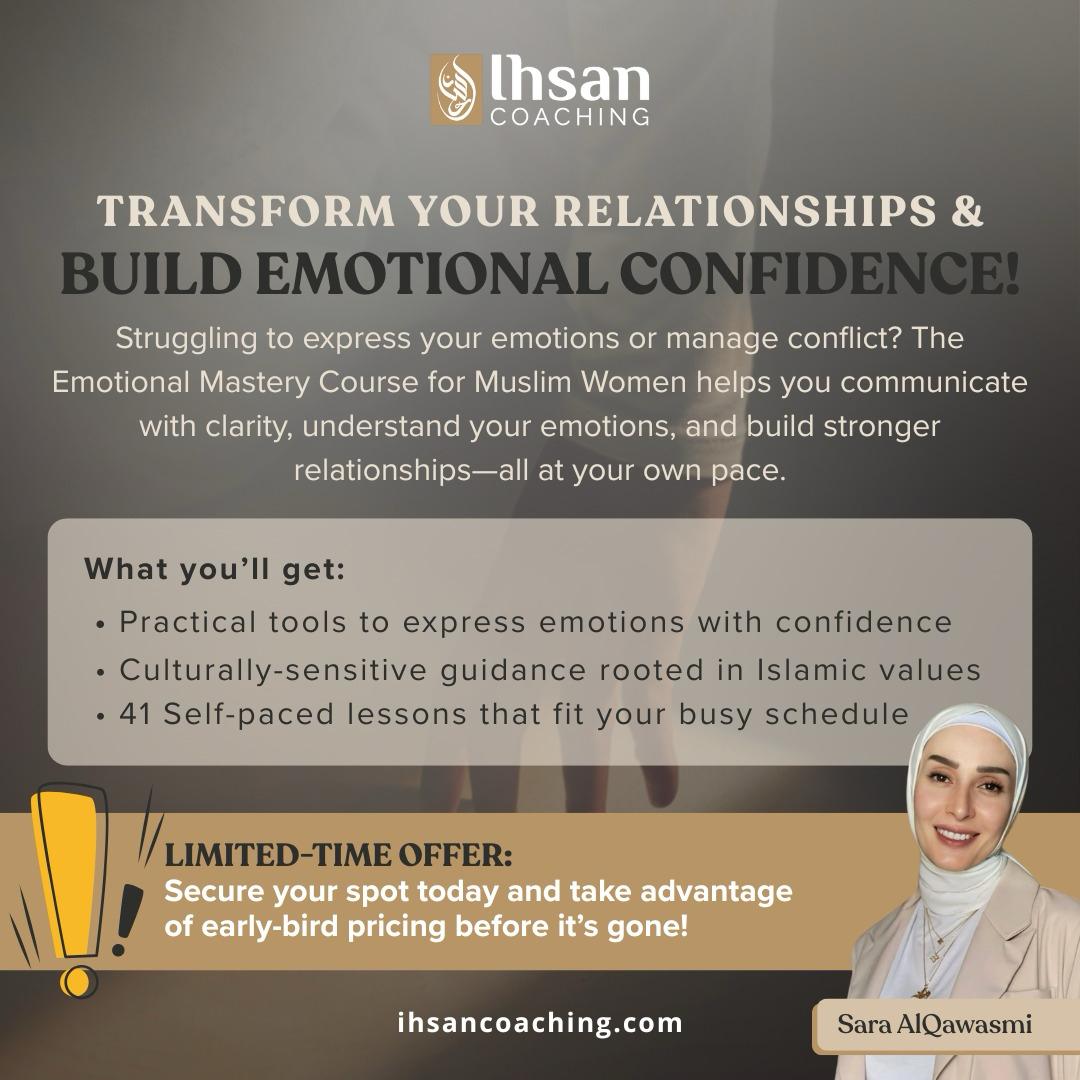Mental health plays a vital role in our lives, and Muslims are no exception. Sometimes, we may face challenges and struggle to understand why or how to cope. It’s crucial to recognize that, as Muslims, Allah has not abandoned us; instead, He wants us to draw closer to Him. However, Muslim mental health is important, and seeking professional help when needed is also essential.
Just as we visit a General Physician when we’re physically ill to aid our recovery, seeking help from a qualified professional counselor who understands our faith can be instrumental in addressing mental health conditions. This blog provides insights into anxiety in Islam and offers guidance on how to deal with it.
Anxiety is a common human experience, and within the Muslim community, it’s no exception. Moreover, knowing the significance of mental health in Islamic teachings and practical strategies from the Quran and Hadith to manage anxiety effectively is essential.
Introduction to Anxiety in Islam
Mental health holds a crucial place in Islam, emphasizing the holistic well-being of individuals. The Prophet Muhammad (peace be upon him) encouraged seeking treatment for physical or psychological ailments. Therefore, addressing anxiety within an Islamic framework is essential for individuals seeking guidance and support.
Understanding the Islamic Perspective on Anxiety
Islam acknowledges the interconnectedness of the spiritual and psychological dimensions of human existence. While faith serves as a source of solace and strength, it doesn’t invalidate the human experience of anxiety. Understanding this balance is crucial in addressing anxiety effectively.

Practical Strategies from the Quran and Hadith
Drawing from Islamic teachings, here are ten practical strategies to manage anxiety:
➡️ Remembrance of Allah (Dhikr)
Remembrance of Allah (Dhikr) involves continuously remembering and praising Allah through various forms of invocation, such as repeating His names and reciting prayers and supplications. It maintains spiritual awareness, strengthens the bond with the Creator, and finds peace and tranquility in His remembrance.
Here are a few verses from the Quran that emphasize the importance of remembering Allah for better mental health.
Surah Ar-Ra’d (13:28)
وَالَّذِينَ آمَنُوا وَتَطْمَئِنُّ قُلُوبُهُم بِذِكْرِ اللَّهِ ۗ أَلَا بِذِكْرِ اللَّهِ تَطْمَئِنُّ الْقُلُوبُ
“Those who have believed and whose hearts are assured by the remembrance of Allah. Unquestionably, by the remembrance of Allah, hearts are assured.”
Surah Al-Ahzab (33:41-42)
يَا أَيُّهَا الَّذِينَ آمَنُوا اذْكُرُوا اللَّهَ ذِكْرًا كَثِيرًا وَسَبِّحُوهُ بُكْرَةً وَأَصِيلًا
هُوَ الَّذِي يُصَلِّي عَلَيْكُمْ وَمَلَائِكَتُهُ لِيُخْرِجَكُم مِّنَ الظُّلُمَاتِ إِلَى النُّورِ ۚ وَكَانَ بِالْمُؤْمِنِينَ رَحِيمًا“O you who have believed, remember Allah with much remembrance. And exalt Him morning and afternoon.”
➡️ Seeking Refuge in Prayer (Salah)
Seeking refuge in Prayer (Salah) is a cornerstone of Islamic practice, providing a direct communication channel with Allah. Through performing obligatory prayers and seeking solace in voluntary prayers, Muslims connect with the Divine, seeking guidance, forgiveness, and blessings while finding inner peace and spiritual fulfillment.
Surah Al-Baqarah (2:152)
فَاذْكُرُونِي أَذْكُرْكُمْ وَاشْكُرُوا لِي وَلَا تَكْفُرُونِ
“So, remember Me; I will remember you. And be grateful to Me and do not deny Me.”
➡️ Practicing Patience and Gratitude
Practicing patience and gratitude entails accepting life’s challenges with grit and recognizing blessings with gratitude. It involves enduring trials with steadfastness, knowing they are tests from Allah, and expressing gratitude for His countless favors, fostering contentment and spiritual growth.
➡️ Reciting Relevant Verses and Duas
Reciting relevant verses and Duas involves seeking guidance and protection from Allah through verses from the Quran and supplications taught by the Prophet Muhammad (peace be upon him). These acts serve as spiritual nourishment, offering comfort, strength, and solutions to life’s trials and tribulations.
➡️ Maintaining a Healthy Lifestyle
Maintaining a healthy lifestyle encompasses caring for one’s physical, mental, and emotional well-being to honor the body entrusted by Allah. It involves adopting balanced habits such as proper nutrition, regular exercise, adequate rest, and managing stress, ensuring one can serve Allah and others optimally.
➡️ Seeking Support from Trusted Individuals
Seeking support from a trusted Muslim life coach involves surrounding oneself with a supportive community of family, friends, and mentors who uphold Islamic values and offer encouragement, guidance, and assistance during times of need. It fosters a sense of belonging, unity, and solidarity, strengthening one’s faith and resilience.
➡️ Engaging in Acts of Kindness
Engaging in acts of kindness reflects the teachings of Islam to be compassionate and benevolent towards all of Allah’s creation. It involves showing kindness, generosity, and empathy towards others, whether through charity, service, or simple acts of compassion, embodying the spirit of Islam and earning Allah’s pleasure.
➡️ Reflecting on the Signs of Allah
Reflecting on the signs of Allah in the universe and within oneself entails pondering over the magnificence of Allah’s creation, His divine attributes, and the purpose of existence. It deepens one’s faith, humility, and gratitude, inspiring awe and reverence for the Creator and His wisdom manifested in the intricate design of the universe.
Surah Al-A’raf (7:205)
وَاذْكُر رَّبَّكَ فِي نَفْسِكَ تَضَرُّعًا وَخِيفَةً وَدُونَ الْجَهْرِ مِنَ الْقَوْلِ بِالْغُدُوِّ وَالْآصَالِ وَلَا تَكُن مِّنَ الْغَافِلِينَ
“And remember your Lord within yourself in humility and fear without being apparent in speech – in the mornings and the evenings. And do not be among the heedless.”
➡️ Keeping Good Company
Keeping good company with righteous individuals involves associating with those who embody Islamic values and strive for spiritual excellence. It entails seeking companionship with people of integrity, purity, and positive influence, fostering mutual support, growth, and accountability toward Allah’s pleasure.
➡️ Focusing on Faith and Trust in Allah
Focusing on faith and trust in Allah entails relying on Allah’s wisdom, mercy, and plan, regardless of life’s circumstances. It involves surrendering to Allah’s will, seeking His guidance through prayer and patience, and maintaining steadfastness in faith, knowing that He is the ultimate source of advice, protection, and provision.
Recommended Readings and Resources
For further guidance on managing anxiety in Islam, consider exploring the following resources:
- Books by Islamic scholars on mental health
- Online platforms offering Islamic therapy.
- Community-based support groups and workshops
- Consult with a professional Muslim life coach.
Professional help from experts
Managing anxiety within an Islamic framework involves integrating spiritual teachings with practical strategies. By nurturing faith, seeking support, and prioritizing self-care, individuals can find solace and resilience in the face of anxiety. Contact Ihsan Coaching; we offer individual coaching and religious consultation for all.

What does the Quran say about Anxiety?
The Quran offers numerous verses that address the topic of anxiety and guide how to cope with it. One such verse is in
Surah Al-Baqarah (2:286):
لَا يُكَلِّفُ اللَّهُ نَفْسًا إِلَّا وُسْعَهَا ۚ لَهَا مَا كَسَبَتْ وَعَلَيْهَا مَا اكْتَسَبَتْ ۗ رَبَّنَا لَا تُؤَاخِذْنَا إِن نَّسِينَا أَوْ أَخْطَأْنَا ۚ رَبَّنَا وَلَا تَحْمِلْ عَلَيْنَا إِصْرًا كَمَا حَمَلْتَهُ عَلَى الَّذِينَ مِن قَبْلِنَا ۚ رَبَّنَا وَلَا تُحَمِّلْنَا مَا لَا طَاقَةَ لَنَا بِهِ ۖ وَاعْفُ عَنَّا وَاغْفِرْ لَنَا وَارْحَمْنَا ۚ أَنتَ مَوْلَانَا فَانصُرْنَا عَلَى الْقَوْمِ الْكَافِرِينَ
“Allah does not burden a soul beyond that it can bear…” This verse reassures believers that Allah knows their struggles and will not burden them with more than they can handle. Additionally,
Surah Ash-Sharh (94:5-6)
فَإِنَّ مَعَ الْعُسْرِ يُسْرًا * إِنَّ مَعَ الْعُسْرِ يُسْرًا
reminds believers that with hardship comes ease, offering hope and solace during anxiety.
What did the Prophet (SAW) say about Anxiety?
The Prophet Muhammad (peace be upon him) provided guidance and wisdom on various aspects of life, including dealing with anxiety. One of his sayings emphasizes the importance of placing trust in Allah. He said, “If you put your trust completely in Allah, He will arrange your sustenance in the same way He provides for the birds. They go out in the morning with empty stomachs and return filled in the evening” (Al-Tirmidhi). This hadith highlights the importance of relying on Allah’s provision and guidance to alleviate anxiety.
What are the 3 3 3 rules for Anxiety?
The 3 3 3 rules for anxiety are a coping technique that involves:
- Naming three things you can see around you.
- Naming three sounds you can hear.
- Moving three parts of your body (such as fingers, toes, or rotating your shoulders).
Which surah calms Anxiety in Islam?
This technique helps to ground oneself in the present moment, divert attention away from anxious thoughts, and promote relaxation.
- Surah Al-Falaq (Chapter 113) Calms Anxiety. It is often recited for protection and seeking refuge from various forms of harm, including anxiety and distress. Reciting this surah with sincerity and trust in Allah’s protection can bring comfort and peace to the heart.
How do I overcome anxiety before marriage?
To overcome anxiety before marriage, it’s essential to address any underlying fears or concerns by:
- Seeking support from family, friends, or a counselor to discuss anxieties and gain perspective.
- Engaging in mindfulness practices, such as deep breathing, meditation, or Dua, to calm the mind and alleviate stress.
- Strengthening faith through regular prayer, Quranic recitation, and remembrance of Allah to find solace and trust in His plan.
- Communicating openly and honestly with your partner about fears and expectations, fostering mutual understanding and support.
- Seeking pre-marital coaching or counseling or attending marriage workshops to prepare emotionally and mentally for the journey.
- Keeping realistic expectations and focusing on the positives while acknowledging that challenges are a natural part of any relationship, with patience and perseverance, trusting in Allah’s guidance and mercy.





